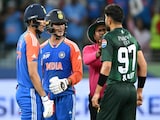In the race between cops and criminals, it often seems like the bad guys have the upper hand, especially with tech like AI creating deepfakes, policing algorithms going rogue with their biases, and so on. Think AI in crime-fighting, and you might picture high-tech errors and controversies.
But sometimes, AI surprises us in good ways, like in the Geeta Colony flyover case, where AI was used simply and effectively, showing us that amidst all the high-tech crime, what really makes a difference is keeping things human.
AI and policing work best when they're not used as a shiny, new toy on steroids by over-enthusiastic cops or even the state.
The Geeta Colony Breakthrough
On a chilly January morning under the Geeta Colony flyover in East Delhi, the police found a young man's body with no ID, nothing to tell who he was. The police had a real puzzle on their hands. But they didn't just rely on traditional methods. They turned to something new - Artificial Intelligence. With AI, they reconstructed what the man's face would have looked like before he met his unfortunate end.
Then, the police got busy. They made about 500 posters with this AI-generated image and put them all over the city. They even shared it on WhatsApp groups. It was like they were bringing him back to life, in a way, just to find out who he was.
And it worked. Someone recognized him from a poster - it was his brother. It turns out the victim was a guy named Hitendra. He had gotten into a severe fight with three other guys, which led to this tragic end. The police then tracked down and arrested three men and a woman who helped them cover up the crime. It's kind of amazing how technology helped solve this mystery.
Talking to Mukesh Singh Sengar from NDTV about the case gave me some real insights. He told me how the police didn't just use AI to make a standard image of the victim. They went a step further to create an image that was relatable and lifelike. The original photo was pretty rough - wrong skin tone, lifeless expression, eyes shut. But the tech team did something remarkable. They tweaked the skin tone, brightened his face, and even made it look like his eyes were open. They were giving this man a second chance to be seen and recognized.
And the police didn't stop there. They changed the backgrounds in the images, adding everyday places like a railway station. This wasn't just about tech. It was about making a connection. The reworked image made people think, "Hey, I might have seen this guy somewhere". And it worked - his brother recognized him from one of these posters. It's incredible, isn't it? How a few smart changes can turn an AI image into something that catches a brother's eye. That's the power of technology when it understands people.
The story of the Geeta Colony case reminded me of my visit to the National Crime Records Bureau (NCRB) five years ago. That day, I witnessed first-hand the human expertise behind solving crimes.
Man vs. Machine: The Human Element in Crime Solving
In April 2018, I visited the National Crime Records Bureau to meet Ish Kumar, then the Director General, and his team. Among them was an investigator who was exceptional at solving missing persons cases. He had this unique ability to look at pictures of unidentified deceased individuals and match them with missing persons' records. It was almost like he had a sixth sense.
Ish Kumar said something that stayed with me: "I wish we could train AI to be as good as him".
But seriously, can AI match a human detective's gut feeling?
This memory came rushing back when I read about AI's recent role in solving the murder case in Delhi. It made me reflect on how far we have reached with AI in crime solving since 2018. But it also raised an important question: even as AI becomes more advanced, can it truly replace the human element in understanding and solving crimes?
I remember spending some time talking to this NCRB investigator. He told me, "Most of the time, I'm identifying people who are no longer alive, but bringing closure to their families is what makes it worthwhile."
This got me thinking - can AI, driven purely by data and algorithms, ever match this level of human insight and satisfaction? How does the cold logic of AI intertwine with the warmth of human understanding? And in this union, what do we stand to gain or lose?
When AI Crosses the Line
When we usually hear 'AI' and 'policing' in the same sentence, it's not about success stories like Geeta Colony. More often than not, these words bring up images of racial biases, wrongful arrests, and privacy nightmares. Remember Robert Williams from Michigan? He got wrongly arrested because AI thought he was someone else. Then there's this teenager in New York, Ousmane Bah, who got falsely accused of theft, all thanks to a mix-up by AI. Nijeer Parks in New Jersey had a similar nightmare, getting jailed for something he didn't do because of an AI error. And Amazon's Rekognition tool? It brought so much heat for messing up, especially with identifying women and people of colour, that they had to stop letting the police use it.
The Geeta Colony case shows us the basics of what works with AI in policing. It's all about keeping things straightforward and focused on people, not just technology.
How do we balance these big AI blunders with the good stuff it can do, like in the Geeta Colony case? Who will police the algorithms and AI? The answer to this will shape the very fabric of justice in our society.
(Pankaj Mishra has been a journalist for over two decades and is the co-founder of FactorDaily.)
Disclaimer: These are the personal opinions of the author.















